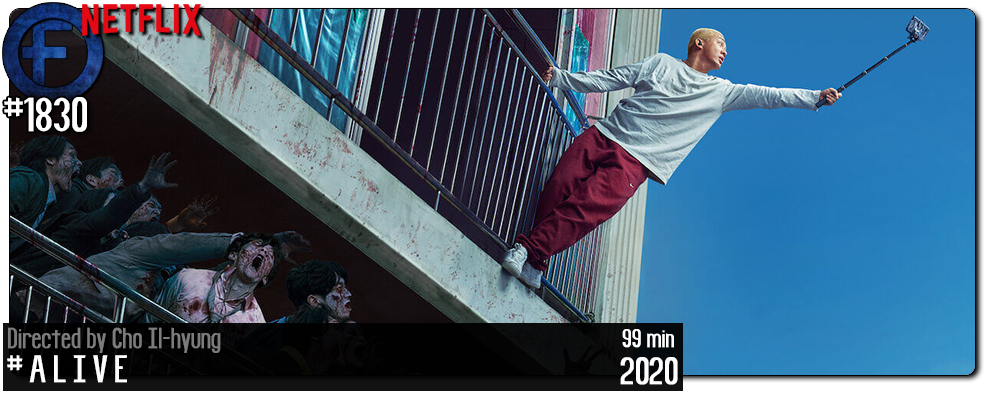Movie Review – Alive (2020)
Principal Cast : Yoo Ah-in, Park Shin-hye, Lee Hyun-wook, Oh Hye-won, Jeon Bae-soo, Lee Chae-kyung.
Synopsis: The rapid spread of an unknown infection has left an entire city in ungovernable chaos, but one survivor remains alive in isolation. With food and water running out, and the ever-present threat of discovery looming, the young man must use his wits to survive and make his way back to his family.
********
South Korean zombie horror has had a resurgence in recent times, what with the success of Train to Busan and its sequel, Peninsula, hitting home runs for the genre around the globe. Given the plethora of entries into the canon of zombie films in the last two decades, not to mention no less than two popular ongoing television series about the walking dead, filmmakers must seek out new and interesting variations on the theme or else face an increasingly savvy audience attuned to the tropes and cliches you generally find with this kind of movie wanting more than you’re capable of delivering. #Alive, whilst not quite offering anything new to its target audience, does enough with the characters to make this a reasonably compelling thrill-ride that owes much to Alfred Hitchcock (surprisingly).
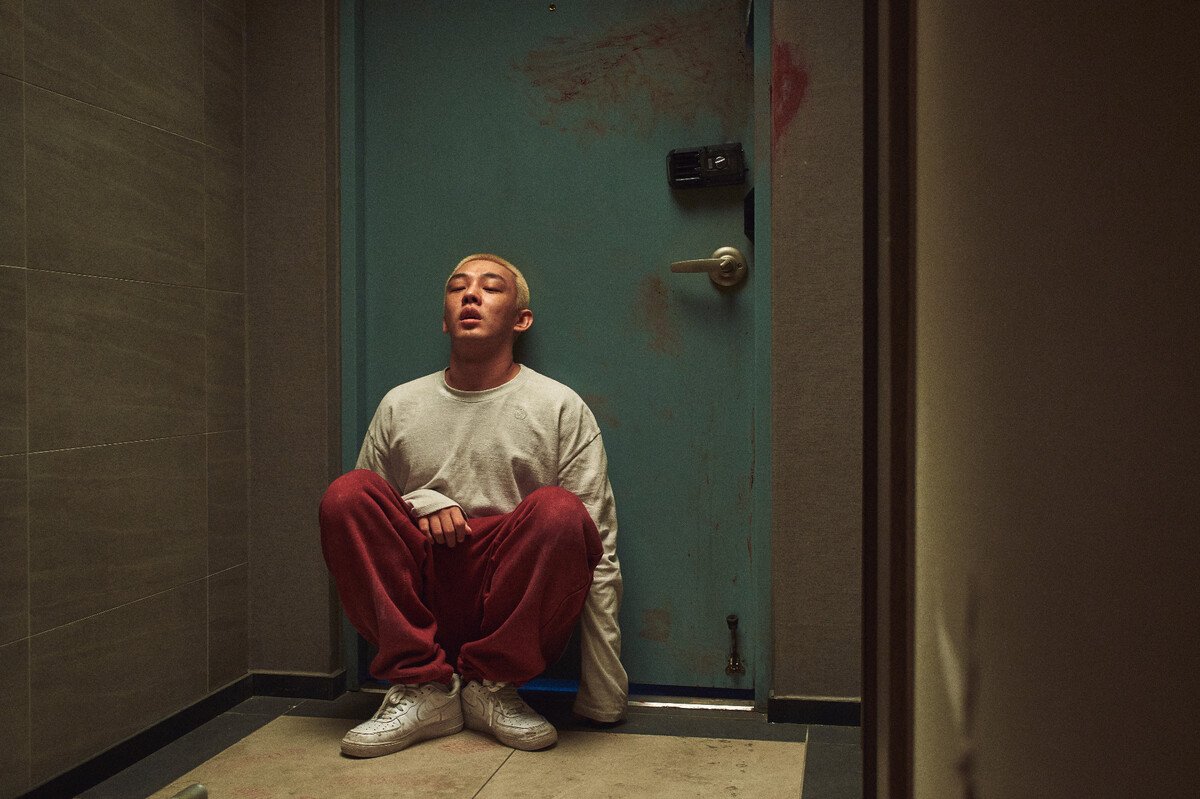
Whilst alone in the family apartment, young video-gaming slacker Oh Joon-woo (Yoo Ah-in) wakes to discover a powerful event occurring outside his door: across the city in which he lives, people are turning into rabid zombie creatures, spreading the viral infection via blood or biting. Trapped inside, afraid to make a sound and aware his food and water are only able to keep him alive for a small period of time, Joon-woo attempts to wait out the days and weeks until he is rescued; one day, while attempting suicide to escape the depression and despair, Joon-woo is befriended by a young woman in the apartment complex across the street, Kim Yoo-bin (Park Shin-hye), and the pair form an unlikely bond as they endeavour to avoid detection and transformation, and await rescue.
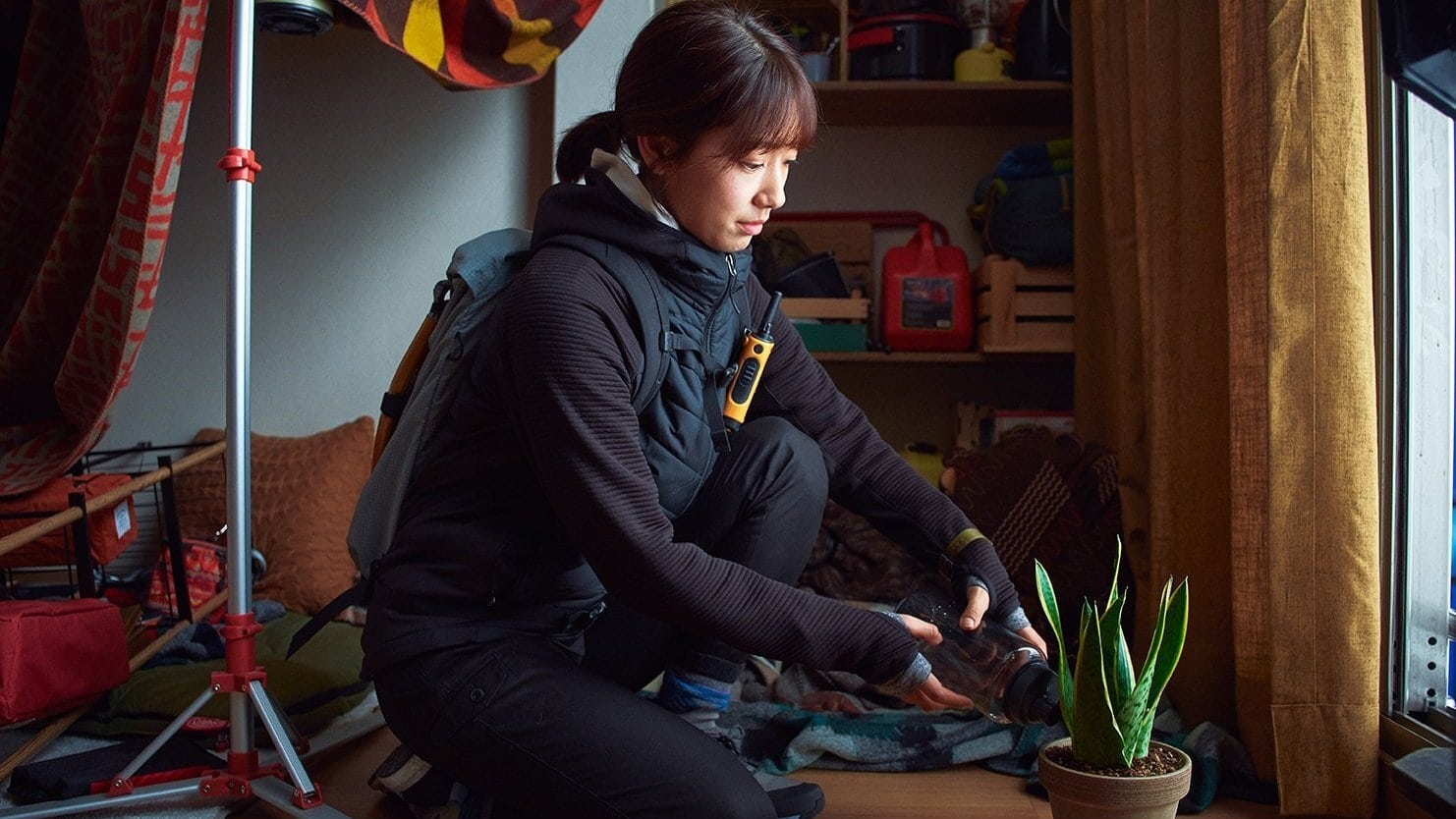
Although marketed as a zombie thriller, #Alive spends a fair amount of time delving into being a character piece, with the relationship between Oh Joon-woo’s tech-savvy teenager and Kim Yoo-bin’s more intellectually mature next-door-neighbour being front and center for a fair portion of the films brisk running time. Make no mistake: this is definitely a zombie film, with as much blood, gore and amazing practical effects as you will see anywhere (although a surprising lack of gratuity, despite the heavy rating classification), but in a cool little twist the film becomes a survivalist horror more than an outright monster flick. The shit hits the fan almost from the first minute, with Oh waking, finding a note left by his parents, and then being thrust into an unwitting game of cat and mouse with ravenous hordes of zombified city residents almost before you get a chance to get your bearings.
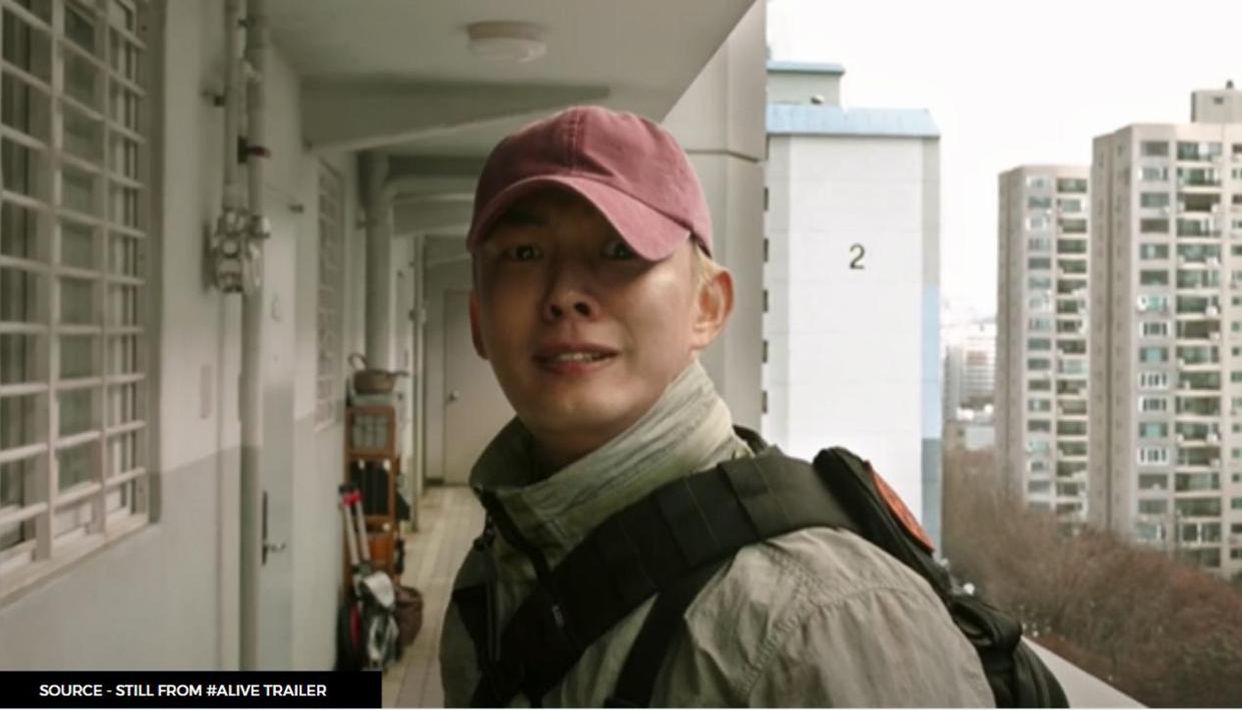
The film, written by director Cho Il-hyung and documentary filmmaker Matt Naylor, spends most of its opening half inside Oh’s family apartment, as the young man comes to grips with the despair of his situation and, through circumstance, solitude. The observations of Oh from his apartment balcony several floors above the ground, reminded me greatly of Hitchcock’s Rear Window, a film to which this opus owes a small debt; he watches on in horror as his neighbourhood transforms into a bloody hellscape, with innocent lives lost to the voracious spread of the zombie plague, and his links to the outside world – internet, phone and television – invariably failing as civilisation comes crumbling down. Actor Yoo Ah-in, does a solid job in bringing Oh to life (ha!) on screen. Oh isn’t an idiot (a recurrent motif through the film) but he’s not the smartest dude in the world either, leastwise not compared to the beautiful Kim (a truly luminous Park Shin-hye, one of South Korea’s most prolific young actresses), who outshines him whenever street-smarts are called for here.
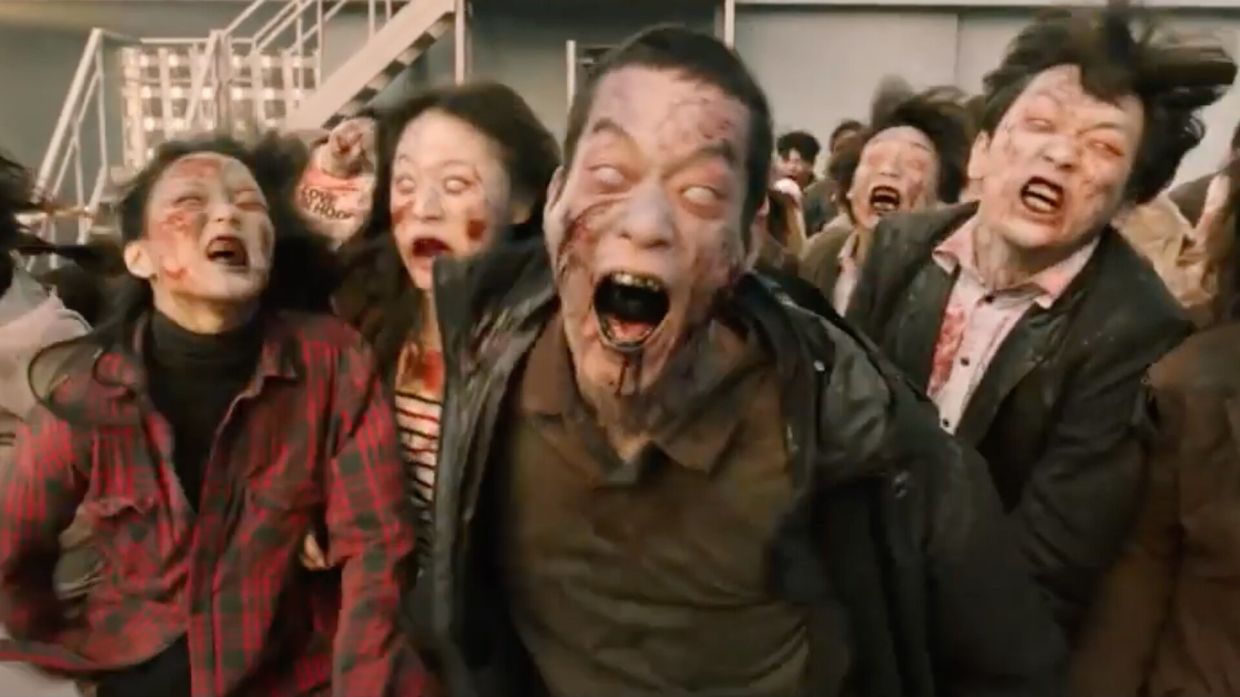
The dynamic between Oh and Kim is what drives much of the tension in the story. Typically in these genre films it’s every man for themselves, but in contrast the friendship between the two lead characters in the face of adversity, uniting for a common goal of simple survival, and both actors have a genuine chemistry between them that lights up the screen. It’s not necessarily a romantic bond, but rather one borne of pure humanist self-interest, which is refreshing. Minor roles to Lee Hyun-wook, as one of Oh’s zombified neighbours, and Jeon Bae-soo, as a masked man who saves Oh and Kim at one point (before things take an even darker turn!), offer points for our characters to bounce off emotionally, thrust unwillingly into this race for survival, but the film benefits enormously from the relatively small-scope narrative and man-in-a-box setting, making the tension rise considerably.
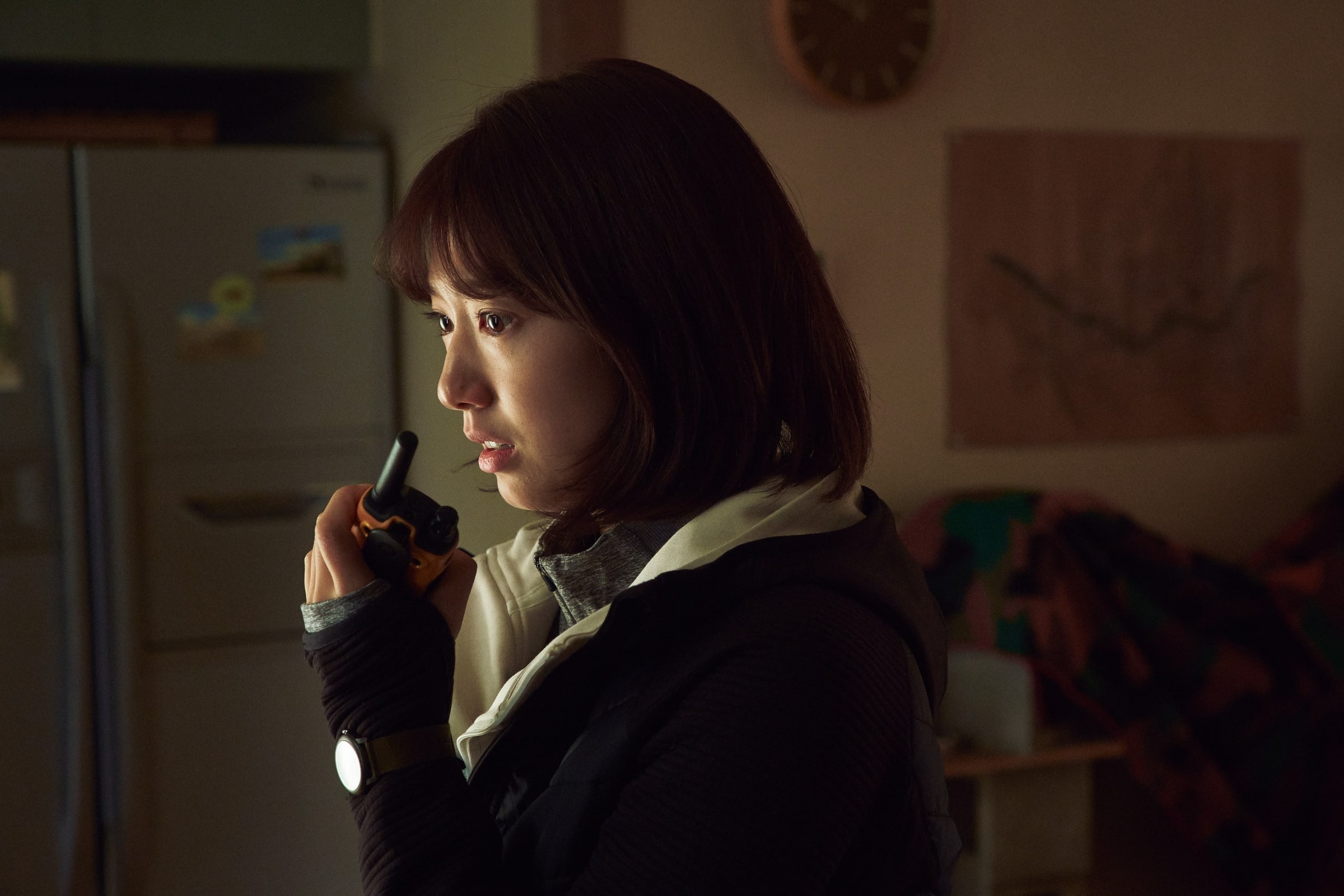
Of course there’s plenty of zombie-themed violence, with the appropriately frantic chase and race sequences whenever fast zombies are involved. The makeup effects on the innumerable extras is excellent, the zombies themselves truly frightening, and the animalistic movements they make as they sniff, snarl and howl their way through each wave of attack is truly frightening – I must admit, the film loses a lot on the small screen of Netflix, because of the vertiginous apartment complexes both characters live in a large cinema screen would have only added to that sense of height and isolation – and the camerawork and editing is among the film’s strongest elements. I did find the lack of graphic gore confounding; there’s a distinct absence of arterial blood splattering across the screen, which is at tonal odds with the gory makeup on display throughout, but a lot of the film’s sound design off-camera works wonders adding to the visceral horror we’re asked to endure.
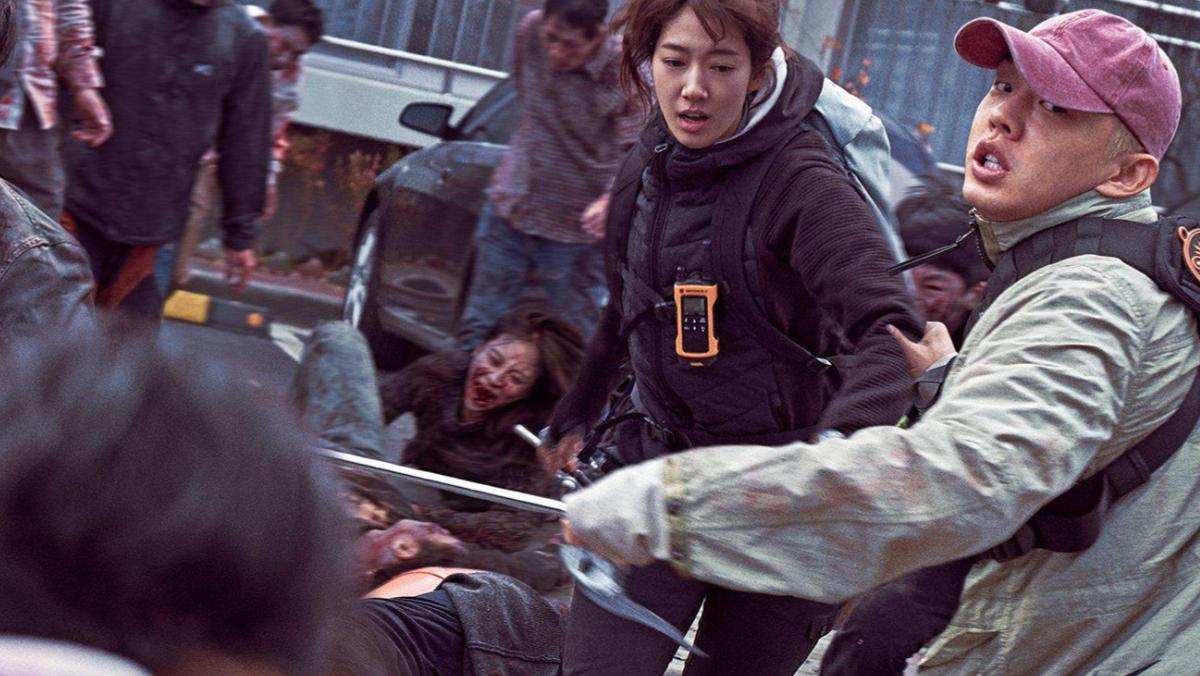
A clever little genre piece, #Alive works well enough even when it’s struggling to elevate itself from other, similar works. The film owes a lot to the recent Hollywood-isation of zombies as a prestige horror motif, and at no point was I truly surprised by what it had to offer other than the sweet leading performances, but you’d hardly describe it as derivative. It rewards zombie fans by being same-same-but-different than all the rest even when it stumbles over thematic similarities with its cinematic brethren. Definitely worth a look.


